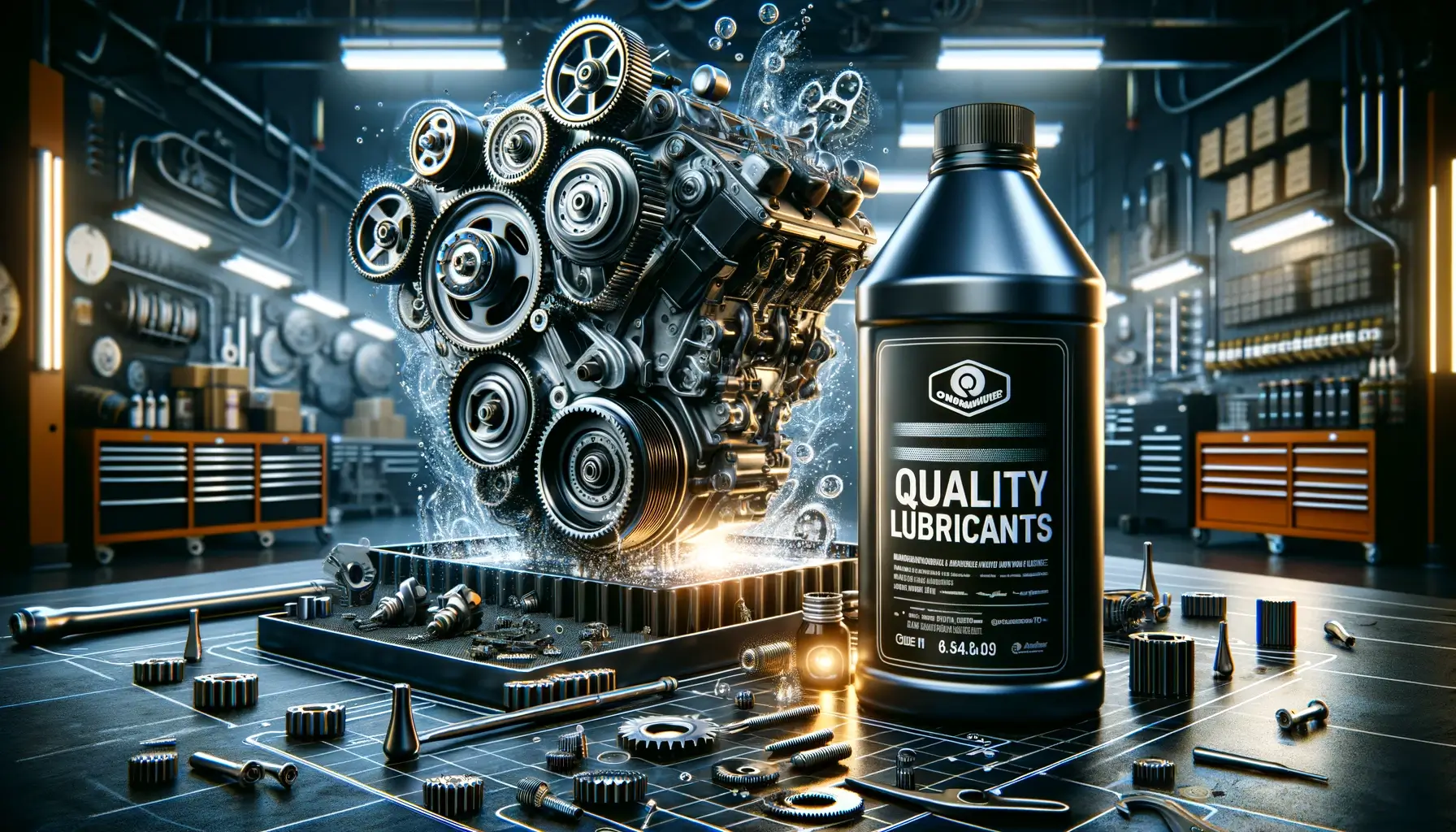Image generated in ChatGPT
Engine longevity isn’t just a technical specification—it’s the foundation of reliable performance, lower operating costs, and peace of mind for every vehicle or piece of machinery you own.
Whether you drive a family sedan, manage a fleet of delivery trucks, or rely on heavy equipment at a construction site, extending the usable life of your engine translates directly into fewer breakdowns, less downtime, and real savings on repairs.
At the heart of this longevity? High-quality lubricants. Let’s dive deeper into exactly how premium oils and additives keep your engine running smoothly, efficiently, and for the long haul.
1. Reduced Wear and Tear
Every time your engine runs, hundreds of metal parts—cams, pistons, bearings, and gears—slide and roll against each other at high speed. Even microscopic scratches or rough spots can trigger accelerated wear if they come into direct contact. High-quality lubricants form a thin, durable film on all these moving surfaces, acting like a microscopic shock absorber.
- Preventing Metal-to-Metal Contact: When the lubricant film is strong, the metal parts never actually touch, which drastically cuts down friction. Less friction means less heat, less wear, and far fewer tiny fragments of metal flaking off into the oil.
- Smoother Operation: Over time, engines treated with premium oils remain smoother at idle and under load. You’ll notice fewer rattles, less vibration, and a more consistent power delivery—signs that internal parts are protected and functioning in harmony.
2. Improved Fuel Efficiency
Friction is the enemy of efficiency. Every bit of extra resistance in your engine consumes additional fuel to overcome it. Premium lubricants are engineered with special viscosity grades and friction-modifier additives that keep the oil “just thick enough” to protect, yet “thin enough” to let parts glide effortlessly.
- Lower Fuel Consumption: By reducing internal drag, your engine doesn’t have to work as hard to produce the same power output, translating into measurable gains at the pump—often in the range of 3–5% under normal driving conditions.
- Optimized Engine Response: When the engine breathes and turns more freely, throttle response sharpens. That means faster acceleration when you need it and a more enjoyable driving experience overall.
3. Corrosion Protection
Moisture, acids, and combustion by-products are constant threats inside any engine. Left unchecked, they lead to rust and corrosion on critical components like cylinder walls, crankshafts, and oil passages. Quality lubricants contain robust anti-corrosion additives that neutralize acids and repel water:
- Acid Neutralization: Combustion creates tiny amounts of acidic compounds that end up in the crankcase. Premium oils include alkaline reserve additives that chemically neutralize these acids before they can attack metal surfaces.
- Water Dispersal: Whether from condensation or fuel dilution, small droplets of water can form in your oil. High-quality formulations disperse water throughout the oil, preventing it from pooling and causing localized corrosion.
4. Temperature Regulation
Engines can generate temperatures exceeding 200 °C (392 °F) in the combustion chamber and valve areas. Without efficient heat removal, seals harden, parts warp, and oil itself can break down. Top-tier lubricants are designed to manage this heat in two crucial ways:
- Heat Transfer: Engine oil acts as a coolant by carrying excess heat away from hot spots and circulating it back to the oil pan, where it can dissipate. Better heat transfer means more stable operating temperatures and fewer thermal spikes that damage components.
- High Thermal Stability: Additives keep the oil from thinning out at high temperatures or thickening in cold starts, ensuring reliable protection across the full range of operating conditions.
5. Contaminant Removal and Engine Cleanliness
No engine ever runs perfectly clean—soot, dirt, fuel residue, and tiny metal particles inevitably find their way into the oil. Over time, these contaminants form sludge and varnish that clog oil passages and impair performance. Premium oils include powerful detergent and dispersant additives to keep your engine’s internals spotless:
- Detergents: These break up deposits on piston rings and cylinder walls, preventing buildup that can reduce compression and power.
- Dispersants: They trap particles in suspension, preventing them from settling and forming sludge. As you drive, the oil filter then removes these trapped contaminants for good.
Invest in Lubricants
Investing in high-quality lubricants is a wise decision for anyone looking to extend the life of their engines.
By reducing wear and tear, improving efficiency, protecting against corrosion, regulating temperature, and removing contaminants, premium lubricants ensure your engines remain reliable and cost-effective over the long term.
For more information on top-quality lubricants and other engine care solutions, visit Interion.


